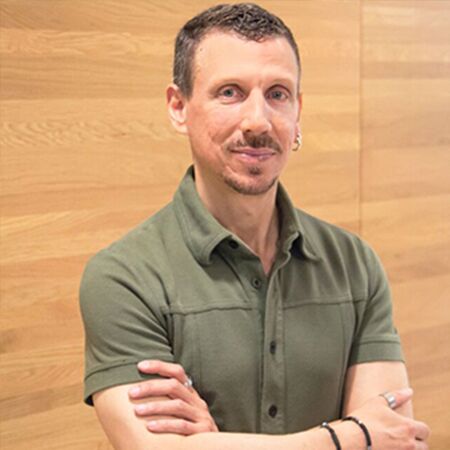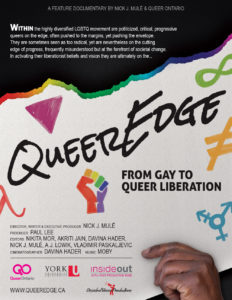For decades, the LGBT2-SQ+ communities have paved the way for wide-ranging dialogues on equality and sexuality through many different political and societal lenses. While the community continues to evolve, the important history of queer activism has often been undervalued, diluted, and in some cases, nearly forgotten.
Queer liberation activism is working to change that. While drawing from the radical work of the early gay liberation movement, today’s activists are advocating for social change and equity that allows members of the LGBT2-SQ+ communities to celebrate and value all identities, avoid labels, and challenge existing societal norms.
As an associate professor in the Faculty of Liberal Arts & Professional Studies’ (LA&PS) School of Social Work, Nick Mulé is cross-appointed to – and Coordinator of – the Sexuality Studies Program in the School of Gender, Sexuality, and Women’s Studies. He is no stranger to this work – offering notable contributions to research focusing on the recognition and treatment of the LGBT2-SQ+ community.

In his role as the founder of Queer Ontario, a provincial network committed to questioning and challenging the practices that aim to regulate the queer community, Mulé has helped to raise awareness of issues concerning social inequality, including institutional practices, laws, and human rights.
In his first feature-length film, QueerEdge: From Gay to Queer Liberation, Mulé explores the ways the gay liberation movement has changed over the past 50+ years – presenting a thought-provoking discussion with over 30 academics, artists, and activists with unique viewpoints on the topic.
For Mulé, QueerEdge represents a natural evolution of the knowledge gained from his community-based Queer Liberation Theory project. In the years since this study’s inception, Mulé has uncovered ways that the movement has come up short – leaving room for critiques against the capitalist aspects aligned with superficial acceptance of the community, the limitations imposed by heteronormative concepts, and other areas. With the support of a SSHRC Insight grant, he is currently theorizing queer liberation from an international perspective.
"In the past, queer liberationists had to battle not only against a hostile society, but also against certain factions within their own communities who were willing to conform in the effort to fit in," Mulé says. "Fast-forward to the present, and the trend continues. Progress, but at the price of some disingenuous compromises with mainstreaming effects. The parallels remain."

While discussing the historical and contemporary fight for something more than the surface-level concept of equality, QueerEdge explores the fundamental principles of fair treatment with critical assessments on what the movement has become; citing queer liberation activism as a more thorough approach that directly challenges foundational norms. The documentary adds important perspectives to the conversation, addressing the lack of attention paid to the intersectional characteristics and needs of LGBT2-SQ+ communities.
Throughout the film, the original goals of the movement are compared and evaluated against current realities, acknowledging progress that has been made, while simultaneously critical of LGBT assimilation.
"Equity is what we need. Not just 'equality'. The meaning of equity respects the fact that we’re all different. What liberation really pursues is a celebration of those differences."
On Thursday, February 6 at 2:30PM, QueerEdge will be screened at the Nat Taylor Cinema for the first time at York University, followed by a Q&A session with film director Prof. Mulé. All are welcome to attend this free event. Email cfr@yorku.ca to RSVP.
Written by Andre McLean
